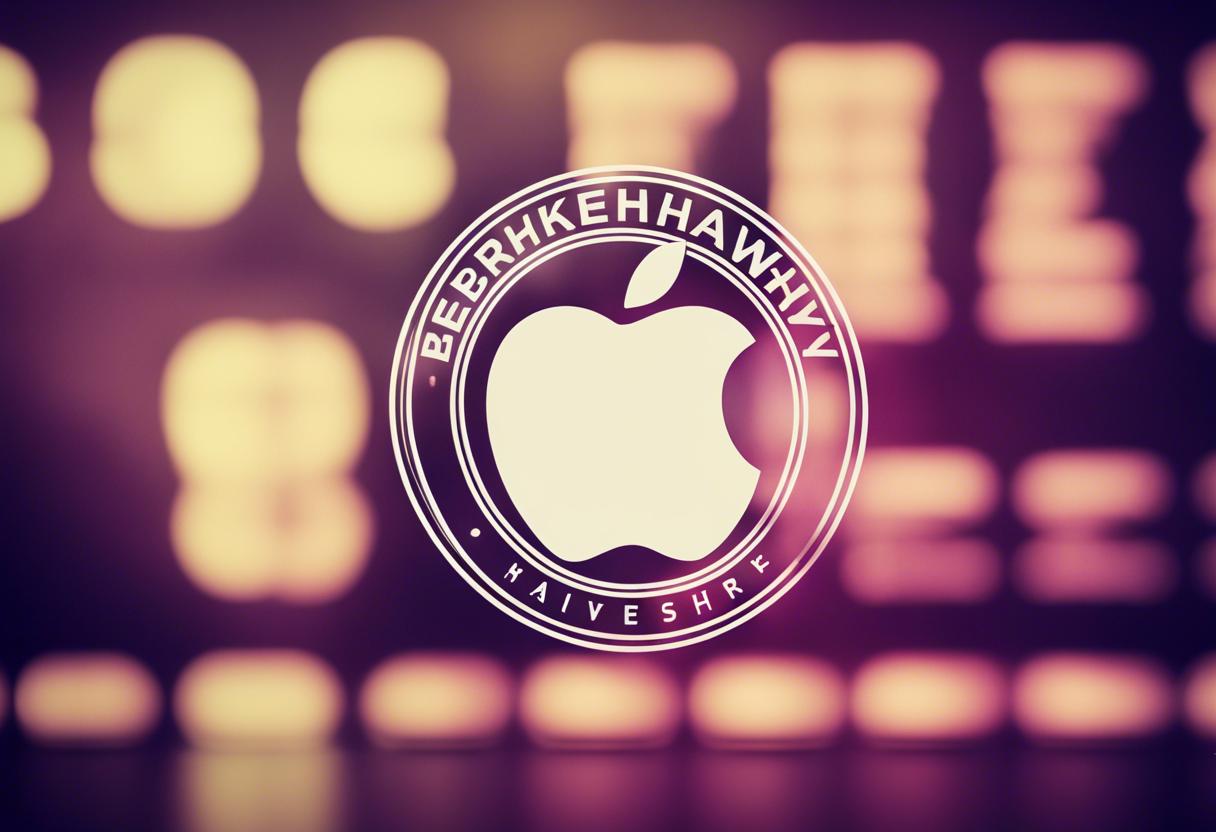Berkshire Hathaway, led by billionaire investor Warren Buffett, has significantly lowered its shares in the manufacturer of iPhone, Apple, in an extensive sell-off which estimated $76 billion (£66 billion). The firm’s holding in Apple has been reduced by over $50 billion, settling at $84.2 billion in the second quarter, based on public filings from Saturday, which have revealed substantial investment profits.
This data indicates that approximately half of Berkshire’s stake, or about 390 million Apple shares, were sold. These transactions, alongside other stock disinvestments, resulted in an after-tax net profit of $47.2 billion, a beneficial outcome for an investment that began via one of Buffett’s associates in 2016.
The sales of stocks have boosted Berkshire’s cash holdings to an all-time high of $277 billion, an increase of $88 billion from the prior quarter. Berkshire reinvested these profits into short-term treasuries as Mr Buffett retreated from American equity markets.
At the end of last year, Buffett began to scale down his shareholding in Apple and accelerated this process in early 2024. In May, he reassured stakeholders that he continued to view Apple as one of the major investments of the corporation. He ranked it among other key long-term investments such as Coca-Cola and American Express.
During the firm’s annual conference in May, Buffett stated that unless some serious changes occurred that dramatically altered their capital allocation strategy, Apple shall remain their most significant investment. He added that under the present circumstances, he does not mind increasing the firm’s cash position, as he finds it quite appealing considering the outlook of the equity markets and the global economy.
Apple has been a critical equity investment for Berkshire in recent years, leading the broader market higher. Historically, Buffett and his late associate Charlie Munger hesitated to invest in tech firms and had expressed regrets about missing out on opportunities like Google. Their ventures in technology, notably IBM in 2011, had not garnered good returns. This caution changed in 2016 when Buffett heavily invested in Apple. Since then, Berkshire has spent an estimated $40 billion on Apple’s shares, according to the Financial Times.
The total amount encapsulates investments made by Mr Buffett, his investment assistant initiating the trade, and an insurance subdivision owned by Berkshire that bought into the corporation too.
Apple’s shares have witnessed a substantial return of close to 800% since Berkshire first revealed its investment.
J Stern & Co’s chief investment officer and Berkshire investor, Christopher Rossbach, suggested that the Apple stock sell-off signifies the importance Mr Buffett attaches to valuation discipline in his investment decisions.
Mr Rossbach posed the conundrum of how Mr Buffett will utilise the cash and whether among the shares, he can identify investment opportunities, or redistribute it to shareholders via stock buy-backs —a quandary that is unlikely to fade away.
Edward Jones’ analyst, Jim Shanahan, noted Mr Buffett’s indication towards possibly elevated capital gains taxes in the near future as a likely reason for his exit from a few investments.
Mr Buffett did not react to an appeal for a statement.
Aside, Berkshire reported that it has steadily exited a few other positions following the second quarter’s ending.
Recently, over 12 successive dealing days, the firm has offloaded $3.8 billion of Bank of America shares, reducing a highly rewarding wager. According to disclosures with US securities regulators, these sales trimmed Berkshire’s stake in the US bank by a percentage point to 12.1%.
Berkshire has profited from the Federal Reserve’s interest rate hikes over the previous two years, enhancing the interest income on its treasury bills portfolio. Over the past year, the company garnered $2.6 billion in interest income in Q2 and $8 billion, surpassing the $5.4 billion dividends it received on its $285 billion stock portfolio.
Berkshire’s earnings are habitually scrutinised for hints into Mr Buffet’s investment tendencies, and signs of the US economy’s performance. The latest quarterly figures imply slowing economic expansion, though the overall economy seems stable.
Year-on-year operational earnings observed a 15% uptick, amounting to $11.6 billion. Enhanced by a revival in Berkshire’s insurance subdivision, profits soared. As it hiked prices for policyholders, motor insurer Geico saw its pretax underwriting returns more than triple to $1.8 billion.
Earnings for Berkshire’s railway enterprise, BNSF, remained stable. Despite an uptick in consumer goods transport, the decreased coal haulage counterbalanced this. The firm reported a downturn in sales for multiple manufacturing sectors, such as Marmon and Iscar, in the recent quarter.
In contrast, the section encompassing NetJets, the part-ownership private jet company, and aero-parts producer Precision Castparts, experienced a rise in revenues. However, Berkshire noted a decrease in sales for Fruit of the Loom and its restaurant grocery supply enterprise. – Copyright The Financial Times Limited 2024.

